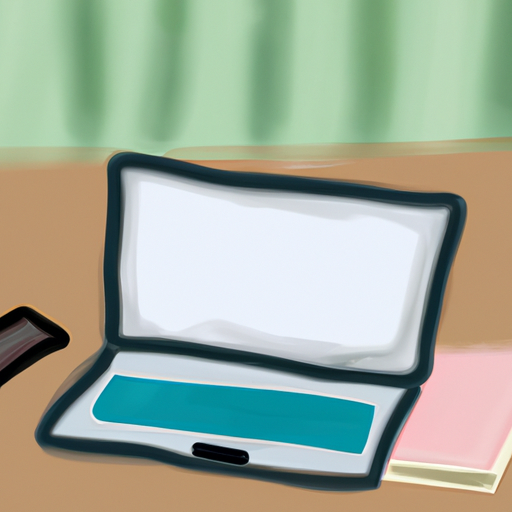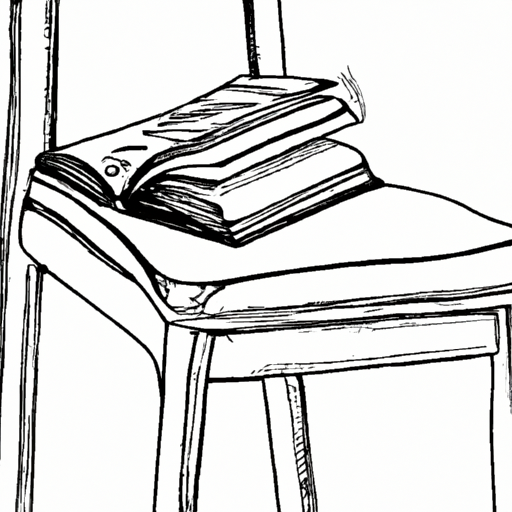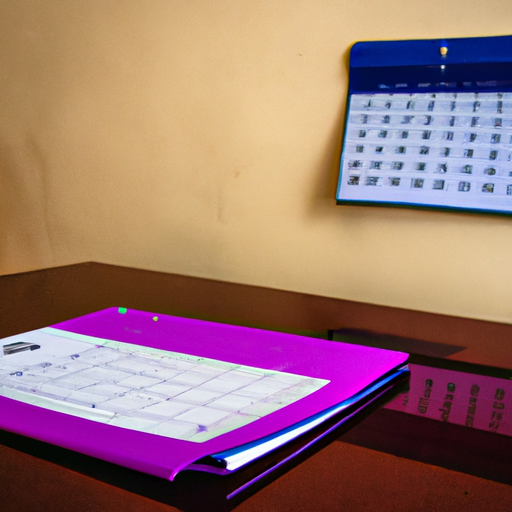Preparing for the Interview
The interview process can be intimidating and overwhelming, and as a job seeker, it’s important to prepare yourself in advance. The key to success in the interview process is to be confident and well-researched. When preparing for an interview, it’s essential to understand the company and the role you’re applying for, as well as the interviewer’s expectations.
To begin your preparation, it’s important to do your research. Read up on the company, the position, and the team you’ll be interviewing with. The more you know, the better equipped you’ll be to anticipate questions and provide thoughtful and unique answers.
Once you’ve done your research, it’s time to practice. Practice answering questions and responding to scenarios in the style and manner that you believe the interviewer is looking for. Have a friend, family member, or mentor ask you questions to help you gain a better understanding of what the interviewer may ask. This will help you feel prepared and confident on the day of the interview.
It’s also important to come up with creative and unique answers to common interview questions. You want to give the interviewer a sense of your personality and creativity. Think of ways to stand out and make yourself memorable. Perhaps you could provide a personal example or highlight a unique experience or skill.
Finally, take time to practice your body language and posture. Make sure your posture is open and relaxed, and that you maintain eye contact and use confident body language. Research has shown that body language and nonverbal cues can have a big impact on the interviewer’s opinion of you.
Preparing for an interview can be intimidating, but it doesn’t have to be. By understanding the company, researching questions and answers, and practicing before the interview, you’ll be able to showcase your unique talents and make a great impression. With the right preparation and attitude, you’ll be well on your way to acing the interview!

Behavioral Questions
Behavioral questions can be tricky to answer in a job interview, but they are essential for employers to understand your work habits. Asking questions about past experiences and behaviors allows employers to gain insight into how you will perform in the role. Here are some key tips for answering behavioral questions in an interview:
- Prepare ahead of time. Research common behavioral questions and come up with at least five examples of how you have demonstrated the desired behavior in previous roles.
- Be honest. Don’t exaggerate or make up stories. Employers can see through false claims and it will come across as disingenuous.
- Focus on the positive. Highlight your successes and stay away from negative experiences.
- Don’t be afraid to ask questions. If you are unsure of the question or want more information, don’t be afraid to ask for clarification.
- Use the STAR technique. This stands for Situation, Task, Action, Result. Using this method will help you to provide a clear and concise answer to the interviewer.
- Show enthusiasm. Let the interviewer know that you are excited about the idea of taking on the role and that you are confident in your ability to do the job well.
- Be specific. Give concrete examples and explain why you chose to take the action that you did.
- Show that you have learned from your experiences. Explain how you have grown and developed as a result of the situation.
Behavioral questions should not be taken lightly as they are an important part of the job interview process. Answering them in the right way can help you to stand out from the competition and make a great impression on the hiring team. Preparing ahead of time and using the STAR technique will ensure that you are well-equipped to answer these questions and make the best possible case for yourself.

Common Questions and How to Answer Them
When it comes to interviews, preparation is key. Knowing the common questions and how to answer them can help you stand out from the competition.
When preparing for an interview, the most important thing is to practice. Think of the questions that are likely to be asked and practice your answers. This will help you to feel more comfortable and confident during the interview.
When it comes to common questions, there are a few that are asked in almost every interview. Some of these include: “Tell me about yourself”, “Why do you want this job?” and “What are your strengths and weaknesses?”.
When answering these questions, it is important to be honest and to focus on your unique skills and qualities. For example, when answering the question “Tell me about yourself”, focus on the aspects of your experience and background that make you a great fit for the job. When answering “Why do you want this job?”, focus on the connections between your skills and the position, and how you can contribute to the success of the organization.
When it comes to discussing your strengths and weaknesses, it is important to be honest and open. Instead of focusing on weaknesses, focus on how you are addressing them or how you are working to improve them.
Another common question is “Why should we hire you?”. For this question, focus on the qualities and experiences that make you the best candidate for the job. Explain how you are uniquely qualified to take on the challenges of the job and how you can make a positive contribution to the organization.
The last common question is “Do you have any questions for me?”. This is an important question and a great opportunity to demonstrate your knowledge and interest in the position. Ask questions that show your enthusiasm and interest in the job and demonstrate that you have done your research.
By preparing for the common questions, you can demonstrate your enthusiasm, knowledge and qualifications. This will help you to stand out from the competition and make a great impression. With practice and preparation, you can be confident and ready for your next interview!

Tips to Help You Ace the Interview
As the job market continues to become more competitive, it is essential to be prepared for an interview. Acing an interview requires confidence, knowledge, and practice. Here are some tips to help you ace the interview and stand out from the crowd.
First and foremost, research the company and position you are applying for. Knowing the company’s values, mission, and goals can help you answer questions more confidently. Additionally, prepare answers to typical interview questions beforehand. This will help you be more prepared and feel more confident during the interview.
When you are in the interview, make sure to listen carefully and answer questions thoughtfully. Show that you are engaged and interested in the position. Also, be sure to ask questions at the end of the interview. This will show that you are engaged and have done your research.
Another important tip for acing an interview is to practice. Before the interview, practice with a friend or family member. This will help you become comfortable with answering questions, as well as give you a chance to practice speaking confidently.
Finally, be yourself. Showcase your unique skills and experiences. Doing this will help you stand out from the crowd and make you a more attractive candidate.
By following these tips, you will be better prepared and more confident during your next interview. Research the company, prepare answers to questions, listen carefully and answer thoughtfully, ask questions, practice, and be yourself. Doing these things will help you stand out and ace the interview.

Questions to Ask the Interviewer
When it comes to job interviews, the focus is often on the questions the candidate has to answer. However, it is important to remember that the interview is a two-way street. Candidates should not just be answering questions, but also asking questions to get a better understanding of the role, the company and the team.
Asking the right questions can make all the difference in an interview. It shows the interviewer that you are engaged, interested and that you have done your homework. Here are some essential questions to ask the interviewer and the best ways to frame them:
- What do you think are the most important qualities for someone in this role? This question will give you an idea of the qualities the interviewer is looking for and will also give you a chance to demonstrate the qualities you possess.
- Can you tell me more about the team I would be working with? This is a great question to ask, as it will give you an idea of the culture and the people you would be working with.
- What challenges have past employees faced in this role? This question will allow you to determine what challenges you might face in the role, and also allows you to demonstrate your problem-solving skills.
- What has been the most rewarding part of your experience working here? This question will give you an idea of the company culture and the values they prioritize.
- What opportunities are there for learning and professional development? This will give you an idea of the company’s investment in the career development of its employees.
- What do you think sets this company apart from its competitors? This question will give you an insight into the company’s identity and how it perceives itself.
- What were the key reasons for the success of the last person in this role? This question will give you an idea of the skills and qualities that made the previous person successful in the role.
- What are the next steps in the hiring process? Asking this question shows the interviewer that you are keen to move forward with the process.
Asking questions in an interview is essential and can give you an edge over other candidates. These questions will help you to get a better understanding of the role, the company and the team, and will demonstrate to the interviewer that you are engaged and interested.
Questions You Shouldn’t Ask
Asking the wrong questions during an interview can be a huge mistake. Not only will it make you appear unprofessional and unprepared, but it can also make the candidate feel uncomfortable and unappreciated. It is important to know the right questions to ask, but just as important to know the questions you should avoid.
The most important thing to remember is that you should never ask a candidate about their age, race, religion, or marital status. These topics can be considered discriminatory and can lead to legal implications or charges. Instead, focus on their qualifications and how they will fit into the role you are offering. You can also just avoid any personal questions altogether and keep the conversation centered around the position and their experience.
Another question to avoid is one that asks candidates to compare themselves to other people. You are judging the candidate on their own merits and asking them to compare themselves to someone else will only create a hostile environment. Instead, ask questions that focus on the candidate’s experience and how they will contribute to the team.
Additionally, avoid asking questions that are too vague. Asking a candidate to describe their “ideal job” or “ideal workplace” can be too vague and lead to uncomfortable or awkward conversations. If you want to know what their ideal job is, ask them to elaborate on the skills and traits they have that make them a great fit for a position.
Finally, never ask a candidate to provide a “yes” or “no” answer. Asking this type of question puts the candidate in a difficult situation and can make them feel like they are being judged unfairly. Instead, ask open-ended questions that allow the candidate to provide detailed responses that can give you a better understanding of their skills, experience, and qualifications.
When it comes to interviewing candidates, it is important to know the questions you should avoid. Asking the wrong questions can lead to legal implications or make the candidate feel uncomfortable. Remember to focus on their qualifications and experience, avoid personal questions and comparisons, and never ask for a yes or no answer. With the right approach, you can make sure you are asking the right questions to get the best candidate for the job.
How to Follow Up After an Interview
Interviews can be nerve-wracking, so once you’ve made it through, it’s important to remember to follow up. Following up after an interview is crucial for making sure your name is remembered by the interviewer and makes you stand out from the rest of the applicants. It’s a great way to show your enthusiasm for the position, as well as an opportunity to thank the interviewer for their time.
The best way to make sure your follow up is successful is to have an organized plan. Before you leave the interview, make sure you have a contact name, email address, and phone number of the interviewer so you can easily reach out after the interview. If you don’t have this information, it’s best to ask for it before you leave.
Once you get home, send a thank you note to the interviewer right away. A thank you email is a great way to stay fresh in the interviewer’s mind and show your appreciation for the time they took to meet with you. Make sure to express your enthusiasm for the position and include specific details from the interview that resonated with you.
After you send the thank you note, wait at least a week before you reach out again. If you haven’t heard back by then, give the interviewer a call to check in. Don’t be too pushy, but make sure to express your continued interest in the position.
You can also follow up with other people you met during the interview. Reach out to anyone you spoke to, such as the receptionist, and let them know you enjoyed meeting them and that you hope you’ll be working with them soon.
Following up after an interview is a great way to make sure your name stands out from the other applicants. It’s also a great opportunity to show your enthusiasm and appreciation for the position. Make sure you have a plan before you leave the interview, and remember to thank the interviewer, wait a week before you follow up, and reach out to other people you met during the interview. Doing so will make sure your name is remembered and you have the best chance at getting the job.
Dressing for Interview Success
When it comes to interviews, there’s no such thing as ‘overdressed’ or ‘underdressed’ when it comes to clothing. It’s all about dressing for success and making sure you look the part. After all, the interview process is a job in itself – and one which you want to ace. So, to ensure you’re dressed to impress, let’s dive into the essential interview questions and answers related to dressing for success.
First and foremost, it’s essential to dress professionally. This doesn’t mean wearing a full suit, but rather something that looks smart and professional. For men, a shirt, trousers and jacket is usually a safe bet, with the occasional addition of a tie or blazer if appropriate. For women, a dress, skirt or trousers with a blouse and a jacket is usually the way to go.
When it comes to colours, it’s best to keep things neutral. Black, grey, navy blue and brown are all great choices. Avoid overly bright colours and patterns. It’s also important to make sure your clothing is clean, pressed and in good condition.
Accessories can make or break an interview outfit, so choose wisely. Instead of wearing too many, opt for one statement piece such as a nice watch, a scarf or a bracelet. You can also use accessories to show off your personality and give your outfit a unique touch.
Shoes are another important part of your outfit. You want to make sure they look smart, professional and appropriate. If you’re wearing a dress or a skirt, opt for a pair of nice heels. For trousers, a pair of leather loafers or brogues is a great choice.
Finally, it’s important to pay attention to the details. Make sure your nails are clean, your hair is neat and presentable, and your makeup is subtle. Even the smallest details can leave a lasting impression.
To sum up, dressing for success is an essential part of the interview process. Choose a professional outfit that reflects your personality and style, and pay attention to the small details. Remember, you never get a second chance to make a first impression, so make sure you dress to impress!
What to Do if You Don’t Get the Job
When you don’t get the job you were hoping for, it can be heartbreaking and even a bit overwhelming. But it’s important to keep your chin up and focus on the future. After all, there are plenty more interviews out there and you can use the experience you gained from this one to help you make a better impression the next time. The key is to not dwell on the disappointment and instead take constructive steps to improve your chances of success.
First, take a step back and reflect on the job interview. Ask yourself questions like, “Did I prepare enough?”, “Did I come off as too nervous?”, “Did I answer the interviewer’s questions thoroughly?”, and “Did I do enough to show why I would be the best fit for the job?” If you can identify areas that need improvement, make a plan to work on them. This could include brushing up on some skills, taking a course, or learning the latest industry trends.
Also, don’t be afraid to reach out to the interviewer for feedback. You can politely and professionally ask for tips on how to improve for future interviews. Not only will this help you become a better job candidate, but it also shows the interviewer that you’re willing to learn from your mistakes.
Another great tip is to practice interviewing with someone you trust. Ask them to give you honest feedback so you can practice your interviewing skills. This could include practicing answering common questions, rehearsing your responses, and even role playing scenarios.
It’s also important to remember that even though you didn’t get the job, the experience was still valuable. You can use the knowledge you gained from the interview to help you prepare for the next one.
Finally, focus on the positive. There are still a lot of opportunities out there and you never know what might come your way. Don’t be afraid to take risks and try something outside your comfort zone. You never know what you might discover.
No matter how many times you don’t get the job, it’s essential to stay optimistic and motivated. There’s no better feeling than achieving success after overcoming a challenge. With the right attitude and a little preparation, you’ll be ready to conquer your next job interview.
The Benefits of Interview Coaching
The interview process can be an incredibly intimidating prospect, and oftentimes job seekers find themselves feeling unprepared and anxious. It’s no surprise, then, that interview coaching has become increasingly popular in recent years. Interview coaching provides the opportunity to practice answering questions with an experienced professional, helping to boost confidence and improve the overall chances of landing the job.
The benefits of interview coaching are numerous and far reaching. First and foremost, it allows candidates to gain a better understanding of what employers are looking for, and how to best present their skills and qualifications. It also provides the opportunity to practice in a simulated environment, giving job seekers the chance to become more comfortable with the interview process.
Moreover, interview coaching can provide the added benefit of insight into the industry and the organization in question. A good coach can help to provide an understanding of the industry trends and the competition, as well as the skills and qualifications employers are looking for. This can help to ensure that the interviewee is well prepared and knowledgeable.
The benefits of interview coaching also extend to the actual interview. Having practiced and received advice from an experienced coach, job seekers are more likely to know exactly how to answer the questions they’re asked. This can help to alleviate anxiety and increase confidence, enabling the interviewee to present themselves in the best light possible.
Moreover, a coach can provide detailed feedback on how the interview went and what needs to be improved. This type of support is often invaluable, as it can help to make the difference between a successful interview and a missed opportunity.
Finally, interview coaching can provide the opportunity to practice in a variety of different scenarios. Whether it’s a group interview, a video interview, or a face-to-face interview, a coach can guide the interviewee through different types of interview processes and help them make the most of their time.
In short, there are a number of key benefits associated with interview coaching. It can help to boost confidence and understanding, as well as provide insight into the industry, the organization, and the competition. It also provides the opportunity to practice in various scenarios and to receive detailed feedback. Ultimately, it can make the difference between a successful job search and a missed opportunity.





